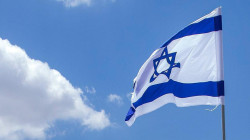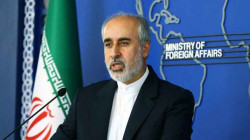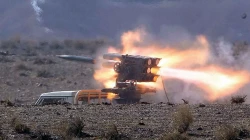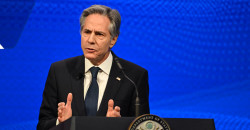Middle East on edge as Iran weighs retaliation, diplomacy intensifies ahead of decisive Thursday
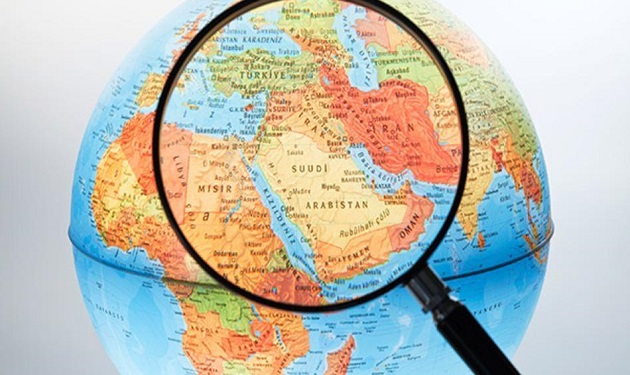
Shafaq News/ The Middle East has entered one of its most perilous weeks as speculation mounts over a potentially imminent response from Iran and its allies, particularly Lebanon's Hezbollah. The coming days appear to be a race between war and diplomacy, with the region on high alert.
So far, there are no reassuring signs that the likelihood of a broader military confrontation is diminishing. The only faint glimmer of hope lies in the fact that Iran has not yet retaliated for the killing of Hamas leader Ismail Haniyeh on its soil, nor has Hezbollah responded to the assassination of its military commander Fuad Shukr, despite more than ten days passing since the incidents. However, this delay does not suggest that Iran or its allies, often referred to as the "Axis of Resistance," have abandoned plans for retribution.
Two Significant Developments
Two significant developments in recent days warrant close attention. First, a joint presidential statement issued by the United States, Qatar, and Egypt—signed by President Joe Biden, President Abdel Fattah el-Sisi, and Emir Tamim bin Hamad Al Thani—has called for the resumption of ceasefire talks this Thursday. This statement has quickly garnered support from several major Arab and Western capitals, primarily out of hope that it might put an end to the devastating war that has raged for over ten months. Additionally, it is seen as a potential diplomatic avenue that could persuade Iran and its allies either to abandon their plans for retaliation or to scale down their response to avoid triggering an open conflict.
Observers note that another development is that to push for these outcomes and avoid a broader confrontation, the US administration has deployed some of its most prominent diplomats and mediators to the Middle East. Brett McGurk, the US presidential envoy for the region, is set to begin a regional tour starting in Cairo within the next few hours. Following him, CIA Director William Burns will lead the Thursday talks based on the tripartite statement from the three leaders, with US Secretary of State Antony Blinken arriving shortly after that.
According to the Hebrew-language news outlet "Walla," Blinken has confirmed his visit to Israeli Defense Minister Yoav Gallant. Blinken's primary goal is to join ongoing efforts to reach an agreement between the Israeli and Palestinian sides and to prevent any further regional escalation.
Israeli Airstrike Fuels Diplomatic Efforts
According to observers, the latest massacre committed by the Israeli Air Force at the Al-Tabe'en School in the Gaza Strip, which claimed the lives of over 100 people and left dozens injured during dawn prayers, has sparked widespread Arab and international condemnation. These reactions are believed to be contributing to renewed diplomatic efforts, as the negotiation process had appeared to reach a deadlock and uncertain future following the assassination of Ismail Haniyeh in Tehran shortly after he attended the inauguration of Iran's new president, Masoud Pezeshkian.
However, the observers also caution that the challenging mission facing the American mediators may ultimately hinge on whether Tehran decides to retaliate against Israel for its violation of Iranian sovereignty through the assassination of "its guest," Haniyeh, within the coming hours or days. According to Israel's Maariv newspaper, American and Israeli officials believe that Hezbollah may carry out its attack within the next 24 hours, with an Iranian response likely to follow shortly after that.
When to Retaliate
It remains unclear whether the diplomatic window that the tripartite statement aimed to open for Thursday's negotiations can realistically be achieved. According to Israel's Channel 13, "It is difficult for Israel to determine whether [Hezbollah leader Sayyed Hassan] Nasrallah and the party's leadership have finalized their plans for an attack, but there is consensus within the security establishment that a response will come in the near future."
Sources close to Hezbollah in Beirut indicate that, despite speculation about the timing of retaliation for the crimes committed by Israel in Beirut and Tehran, the group has not set an exact date for an attack. These sources stress that Hezbollah has neither decided on a delay nor leaked any potential dates to the media.
As for Iran, it has provided many indications of its resolve intent to retaliate against Israel. In a message of congratulations from the commander of the Iranian Quds Force, Brigadier General Esmail Qaani, to Hamas political leader Yahya Sinwar, Qaani stated, "We consider it our duty to avenge the blood of [Ismail Haniyeh] following this tragic incident that occurred within the territory of the Islamic Republic."
In conjunction, Hezbollah, in a statement released yesterday in response to the massacre during dawn prayers in Gaza, denounced "the talk of a ceasefire and setting new dates for negotiations" as "nothing but lies and deceit that will not fool the Palestinian people, their resistance factions, or the supporting fronts " which are "increasingly determined to resist and spare no effort in order to stop the massacre and prevent the enemy from achieving its declared and hidden goals."
Fruitful Talks?
The US-based Axios quoted a source familiar with the negotiations describing the meeting scheduled for Thursday as an "extraordinary" attempt by the Biden administration to broker a deal and prevent a regional war. Meanwhile, Israel's Walla news site noted that Brett McGurk's primary mission in Cairo is to establish security arrangements on Egypt's border with Gaza, including a joint system to prevent arms smuggling and an agreement to reopen the Rafah crossing. These steps are seen as precursors to reaching a broader agreement on the fate of prisoners and a potential ceasefire.
Hamas has not yet issued a clear official stance regarding the tripartite call for negotiations on August 15, neither rejecting nor accepting the proposal. However, sources close to Hamas expressed that the tripartite statement does not provide sufficient reassurance. Palestinian sources familiar with the situation indicated that the Hamas leadership is actively working on preparing its response and outlining the key points that will shape its position in the upcoming round of negotiations.
Hezbollah's "Backing Front"
Along with those efforts, Israel has carried out another targeted assassination, this time in Saida, far from its border with Lebanon, killing senior Hamas leader Samer Al-Hajj in an airstrike. In retaliation, Hezbollah launched an unprecedented attack on Saturday, deploying a swarm of kamikaze drones to strike the Michve Alon base, a key military site southwest of Safad. The base, located 17.5 kilometers from the border, is used for troop assembly and emergency storage.
Israeli sources confirmed casualties from Hezbollah's attack, with reports indicating that several sensitive locations were hit, though details remain under military censorship. Israel's air defense systems managed to intercept only one of the attacking drones.
Channel 12, an Israeli news outlet, described the drone assault as "unusual," praising Hezbollah's advanced military capabilities and its readiness for further confrontation.
Channel 13 reported that Israel is preparing for a potentially dramatic week, with Hezbollah being poised for retaliation and Iran introducing new layers of uncertainty every time.
Iran's Awaited Retaliation
In a statement to IRNA, Iran's mission to the United Nations in New York was asked whether Tehran might delay its plans to attack Israel until after the Gaza ceasefire talks scheduled for Thursday. The mission emphasized that achieving a lasting ceasefire in Gaza is a priority for Iran, adding that any agreement accepted by Hamas would be acceptable to Tehran.
The Iranian UN mission also described the assassination of Hamas leader Ismail Haniyeh in Tehran as "a violation of national security and sovereignty," asserting Iran's right to self-defense, independent of the ceasefire efforts in Gaza. However, it assured that "any Iranian response would be timed and executed in a way that does not undermine the potential ceasefire in Gaza."
